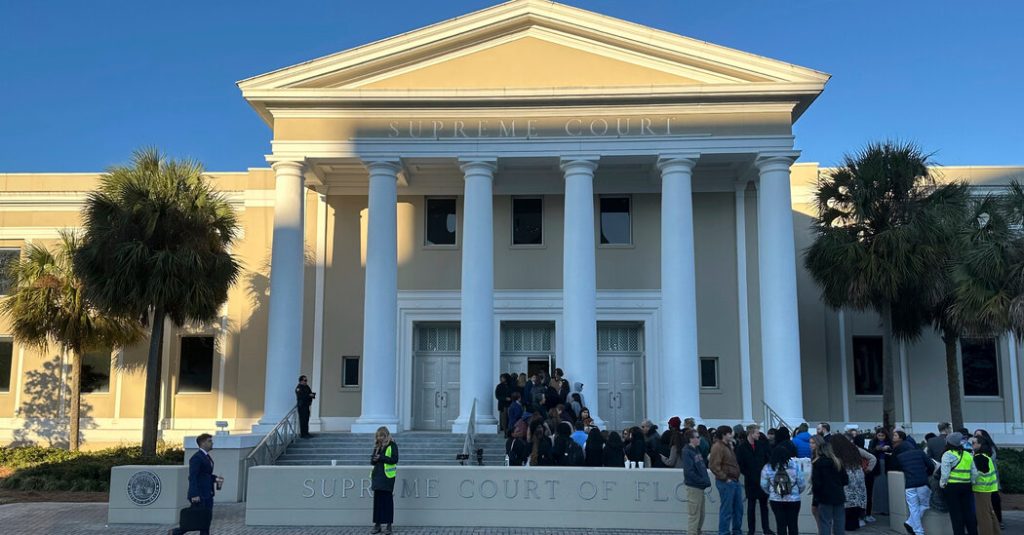In a groundbreaking decision, the Florida Supreme Court ruled that the State Constitution’s privacy protections do not extend to abortion, effectively allowing Florida to ban the procedure after six weeks of pregnancy. This decision overturned decades of legal precedent and marked a significant shift in Florida’s abortion policies. However, the court also allowed Florida voters to decide this fall whether to expand abortion access, with a proposed constitutional amendment guaranteeing the right to abortion before viability, usually around 24 weeks, being allowed on the November ballot.
The rulings reflect the ongoing controversy surrounding abortion in the United States since the Roe v. Wade decision in 1973. The conservative-leaning court’s decision to uphold a 15-week abortion ban and pave the way for a six-week ban underscores the rapid transformation of Florida into a state with restrictive abortion policies similar to other surrounding states. Historically, Florida has been a destination for women from Southern states seeking abortion, but with the stricter bans in place, women will have to seek abortions further away, potentially facing near-total prohibition.
Abortion rights groups in about 10 states, including Florida, are pushing to secure access to abortion through ballot measures. Florida is the largest of these states, and the court’s decision to allow the ballot measure on abortion rights could give voters a chance to directly weigh in on the issue. This decision is seen as historic in the fight for abortion access in Florida, with proponents of abortion rights hoping that residents will vote to give back abortion access to women in the state. The court’s decision could have far-reaching consequences beyond the 15-week ban, as it may lead to even more stringent abortion restrictions in the state.
The majority of the justices argued that past abortion cases had been wrongly decided based on an overly broad interpretation of the State Constitution’s privacy clause. They noted that voters did not understand the privacy clause as extending to abortion when it was added to the State Constitution in 1980. This shift in interpretation and the court’s decision could have significant implications for abortion access in Florida. The dissenting justice warned that the ruling would result in more stringent abortion restrictions under state statutes.
The court’s decision to issue both rulings on the same day gave both abortion opponents and proponents little time to celebrate or strategize. The rulings reflect the current political landscape in Florida, where Republican lawmakers have supported stricter abortion bans, while public opinion polls suggest that most Floridians believe abortions should be legal in most cases. The decision to allow the ballot measure to expand abortion access sets the stage for a contentious campaign leading up to the November vote, with both sides accusing each other of being extreme. The outcome of the ballot measure will have a significant impact on abortion access in Florida and could shape the future of reproductive rights in the state.


